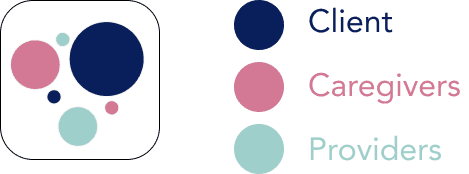Be my ear
Bridging Generations Through Hearing Health
ROLE
tool
YEAR
Be My Ear program provides community-based, supportive services to older adults with hearing loss problem.
The goal of this project is to:
Provide affordable or free hearing aids to eligible older adults.
Foster intergenerational connections by involving students in the program.
Help older adults regain communication skills and reintegrate into social settings.
Create a school-community health initiative that promotes awareness and support for hearing loss.
Target Audience
Primary: Older adults (ages 60+) with hearing loss, especially those from low-income backgrounds.
Secondary: High school and college students participating in the program, healthcare professionals, and educators.
Design Challenges
Ensuring accessibility and affordability of hearing aids.
Encouraging intergenerational engagement and participation.
Overcoming stigma and resistance to hearing aids.
Communicating health information in an easy-to-understand manner.
Solution
Older Adults Hearing Care Program
This program stands out by combining free/affordable hearing aids with intergenerational learning, bringing together students and older adults, creating a socially and emotionally enriching experience beyond just medical support.
Key Features:
Free or Affordable Hearing Aids: Older adults who qualify receive hearing aids at low or no cost.
Intergenerational Learning Program
Students engage with older adults by helping with school projects (e.g., history, life experiences, community service).
Older adults regain communication skills and confidence by interacting with students.
Hearing Care Support Network: Digital and printed guides on hearing health and assistive technology.
Competitive Analysis Summary
Most existing hearing care solutions either focus on the medical aspect or provide limited social support:
Traditional clinics offer expert diagnosis and advanced technology but are often too expensive and lack emotional or social engagement.
Online hearing aid retailers are more affordable and convenient but can be tech-heavy and impersonal for older adults.
Community organizations provide valuable support and education but rarely offer direct access to hearing aids or personalized care.
Pain Points
Many older adults cannot afford hearing aids.
Limited knowledge about hearing care solutions.
Fear of being perceived as “old” or “disabled.”
Family members and caregivers often don’t know how to help.
User Personas
Creating user personas helped to guide my ideation process, and they helped to highlight the goals and pain points of older adults with hearing loss problems:
Key Findings - Older Adult:
Older adults want to rebuild relationships with family and peers.
Older adults want to feel useful and respected, not just helped.
There’s a deep emotional resistance to hearing aids due to stigma around aging and disability.
Many older adults either can’t afford hearing aids or are unaware of programs that could help them.
Key Findings - Student:
Students are driven by personal growth, school achievements, and making an impact. They value experiences that are emotionally meaningful and educational.
Students often feel unsure about how to communicate with older adults and may need guidance and tools to navigate those interactions respectfully and effectively.
Students may lack awareness of hearing-related challenges, but they are open to learning. This creates a unique opportunity for hearing loss education and advocacy.
Cross-Persona Insights:
Both personas benefit from meaningful connection. Creating space for shared stories and learning experiences enriches both groups.
Mutual respect is crucial, older adults want to feel valued, while students want to be taken seriously.
Design solutions should focus on simplicity, empathy, and shared goals, making hearing health a vehicle for relationship-building rather than just medical aid.
Logo Design
Primary Color: Orange
Orange evokes warmth and optimism, helping the campaign feel approachable and uplifting.
Orange reinforces the campaign’s goal of helping older adults reconnect with others and feel more engaged and lively.
Orange naturally draws the eye, making key information stand out, especially for older audiences who may have declining eyesight.
Secondary Color: Blue
Blue is associated with trust, stability, and health, which makes it ideal for a healthcare focused initiative.
Blue is often used in healthcare branding, lending a sense of professionalism and reassurance.
The coolness of blue contrasts with and complements the warmth of orange, creating a visually harmonious and accessible palette.
Typography Choice: Arial
Arial is a clean, sans-serif font that’s easy to read, especially for older adults or those with vision impairments.
Arial is a standard typeface that feels neutral and approachable, ideal for an inclusive audience.
Arial strikes a balance between clarity and warmth, making it well-suited for informative materials like posters without feeling too formal or clinical.
Final Design
This campaign redefines hearing loss care by merging health accessibility with community-building. By providing free hearing aids and fostering meaningful student-older adult relationships, it:
Reduces financial barriers for older adults in need.
Encourages intergenerational connections that benefit both students and seniors.
Improves communication and mental well-being for older adults.
Creates a scalable model that can be implemented in schools and communities nationwide.
Through this initiative, hearing loss is no longer a barrier—it becomes a bridge to new relationships, learning, and improved quality of life.






